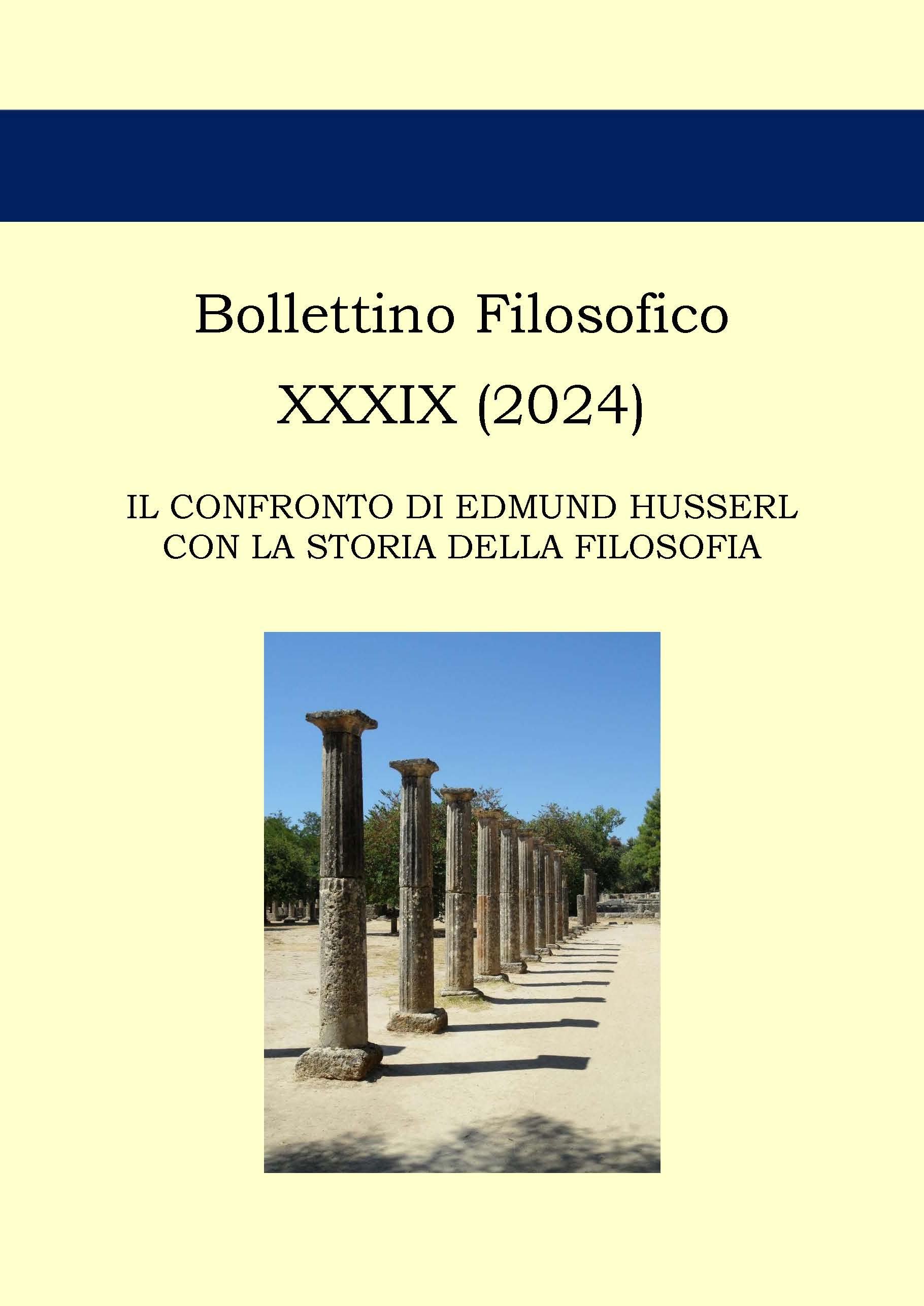Husserl, Cohen e Cassirer
DOI:
https://doi.org/10.6093/1593-7178/11433Abstract
In this essay, I will discuss the concept of historical teleology in Husserl, Cohen and Cassirer. I will distinguish between a “strong” and a “weak” teleology to define two paths that seem to enliven transcendental philosophy. On the one hand, the strong option is underpinned by more general hypotheses on the relationship concerning “consciousness” and “reality”, “thought” and “being”, as well as it gives rise to an “archaeo-teleology”; on the other hand, the weak option tones down the substantial unity of this framework and enables a comparative approach. Therefore, I will show that the most important difference between strong and weak teleology revolves around the emphasis respectively put on the terminus a quo and the terminus ad quem, but I will also draw attention to the intertwining of these two strategies.
Keywords: Culture, Origin, Science, Teleology, Weltgeschichte
Downloads
Downloads
Pubblicato
Come citare
Fascicolo
Sezione
Licenza
Bollettino Filosofico pubblica in internet, ad accesso aperto, con licenza:
|
|
CCPL Creative Commons Attribution |
L'autore conserva il copyright sul suo contributo, consentendo tuttavia a chiunque "di riprodurre, distribuire, comunicare al pubblico, esporre in pubblico, rappresentare, eseguire e recitare l'opera", purché siano correttamente citati l'autore e il titolo della rivista. L’autore, al momento della proposta di pubblicazione, è inoltre tenuto a dichiarare che il contenuto e l’organizzazione dell’opera è originale e non compromette in alcun modo i diritti di terzi, né gli obblighi connessi alla salvaguardia di diritti morali ed economici di altri autori o di altri aventi diritto, sia per testi, immagini, foto, tabelle, sia per altre parti di cui il contributo può essere composto. L’autore dichiara altresì di essere a conoscenza delle sanzioni previste dal codice penale e dalle leggi speciali per l’ipotesi di falsità in atti ed uso di atti falsi, e che pertanto Bollettino Filosofico è esente da qualsiasi responsabilità di qualsivoglia natura, civile, amministrativa o penale, e sarà dall'autore tenuta indenne da qualsiasi richiesta o rivendicazione da parte di terzi.

